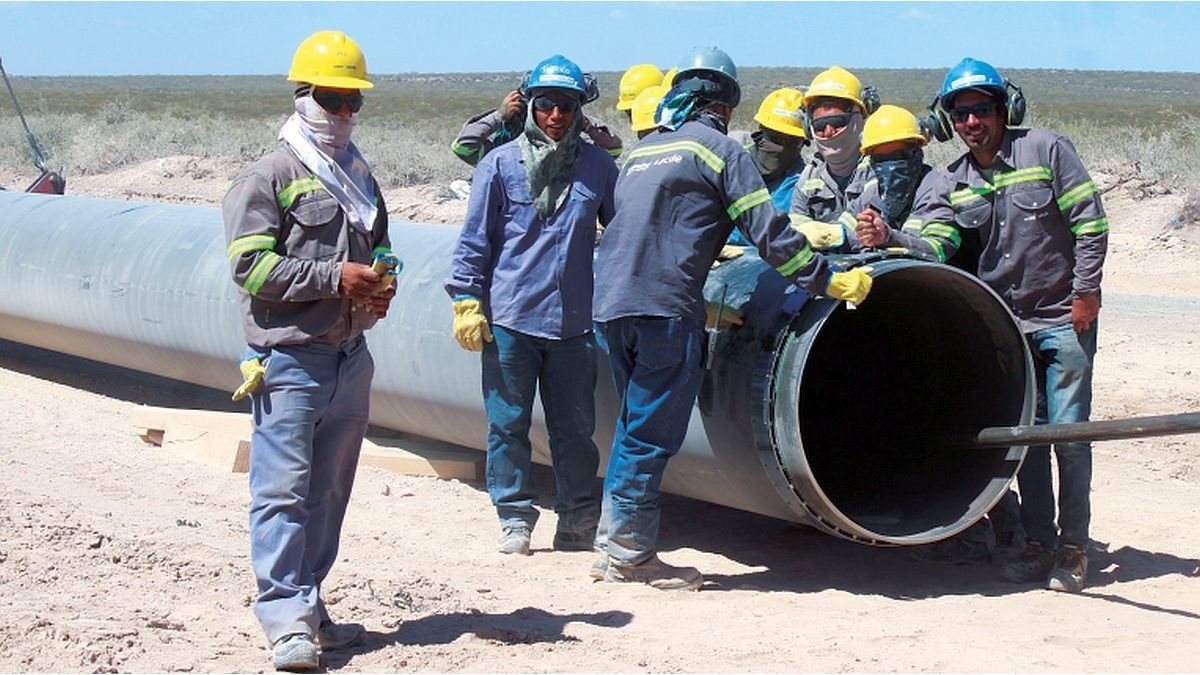Last Sunday the Nestor Kirchner pipeline(GPNK). This achievement will translate into a saving of millions of dollars for the country that will impact the Central Bank reserves (BCRA). In addition, this will be one of the arguments that the economic team that will meet this week with the technical staff of the International Monetary Fund (IMF) in order to unlock the disbursements committed by the end of the first semester and that are delayed due to non-compliance with the goals agreed for that period.
He saving that will generate will be the equivalent to negative balance that the country has in terms of gas import. When the pipeline is fully operational the expense that will be avoided will be a total of US$4.200 million.
Also, the GPNK will allow access to cheaper gas. Currently the gas has a cost of $3 by BTU Meanwhile he imported gas is paid $17.5 by BTUwhich is why in the case of residential consumption would allow a subsidy savings.
While in the industry would allow a improvement in resultswhich will affect a low on costswhich could result in more investment and a higher level of employment.
10 keys to the economic impact that the work will generate
Thanks to the construction of the gas pipeline, it will be possible:
- Substitute alternative fuel imports (Fuel Oil and Diesel) imported for thermoelectric generation.
- Guarantee gas supply for industry Argentina during the winter.
- Expand gas connection for users who still do not have access (30% of households).
- It allows deal with international situations that could complicate Argentina: for example, the reduced production in Bolivia.
- It also allows offset the decline in conventional oil production in the south Argentinian.
- Export to neighboring countries those remnants of natural gas.
- Fiscal impact: the reduction of imports would allow a savings of between u$s2,400 million and u$s3,000 million annually in the stage 1 and from until US$5.6 billion in the stage 2. It would also benefit royalties for producing provinces. The increase due to collection could reach US$50 million in stage 1 and US$90 million in stage 2.
-
With the work already underway, Argentina’s export capacity expands resolving the stage of transportation that today is insufficient for the potential that exists. That will save dollars for reduction of LNG imports (Liquefied natural gas).
-
The estimate regarding the savings in dollars for the second half of 2023according to the date on which this work was started, compared to the same period of 2022, it would reach $1.4 billion.
- Already with the completion of the second tranche, you could stop importing gas and alternative fuels for electricity generation and save in a full year, considering the seasonality of imports, between US$4 and US$4.3 million per year.
Negotiation with the IMF
This week, the Vice Minister of Economy, gabriel rubinsteinand the chief adviser, Leonardo Madcurwill meet in Washington with the technical staff of the International Monetary Fund (IMF). There they will present the precise data regarding the savings that the implementation of the GPNK will generate among the Arguments to unlock committed disbursements for the end of the first semester that are being delayed due to non-compliance with the agreed goals.
In addition, the Argentine negotiators will try to explain to the international organization that the country needed to liquidate more dollars for him rise in international fuel prices. As calculated, the figure for extra spending was about US$5.2 billion, while for the IMF the figure was significantly lower.
The discussion It’s important because the result of it will come out then the reserve goal at the Central Bank that the parties should take into account this year; and that originally reached almost US$9,000 million. For Argentine officials, adding that figure to the cost of the war for the Russian invasion of Ukraine plus the drought of 2023, Argentina lost in a year (June 2022- June 2023) more than US$9,000 million; exactly the number of reservations that had to be met with the IMF after the signing of the Extended Facilities agreement in March of last year.
Source: Ambito




